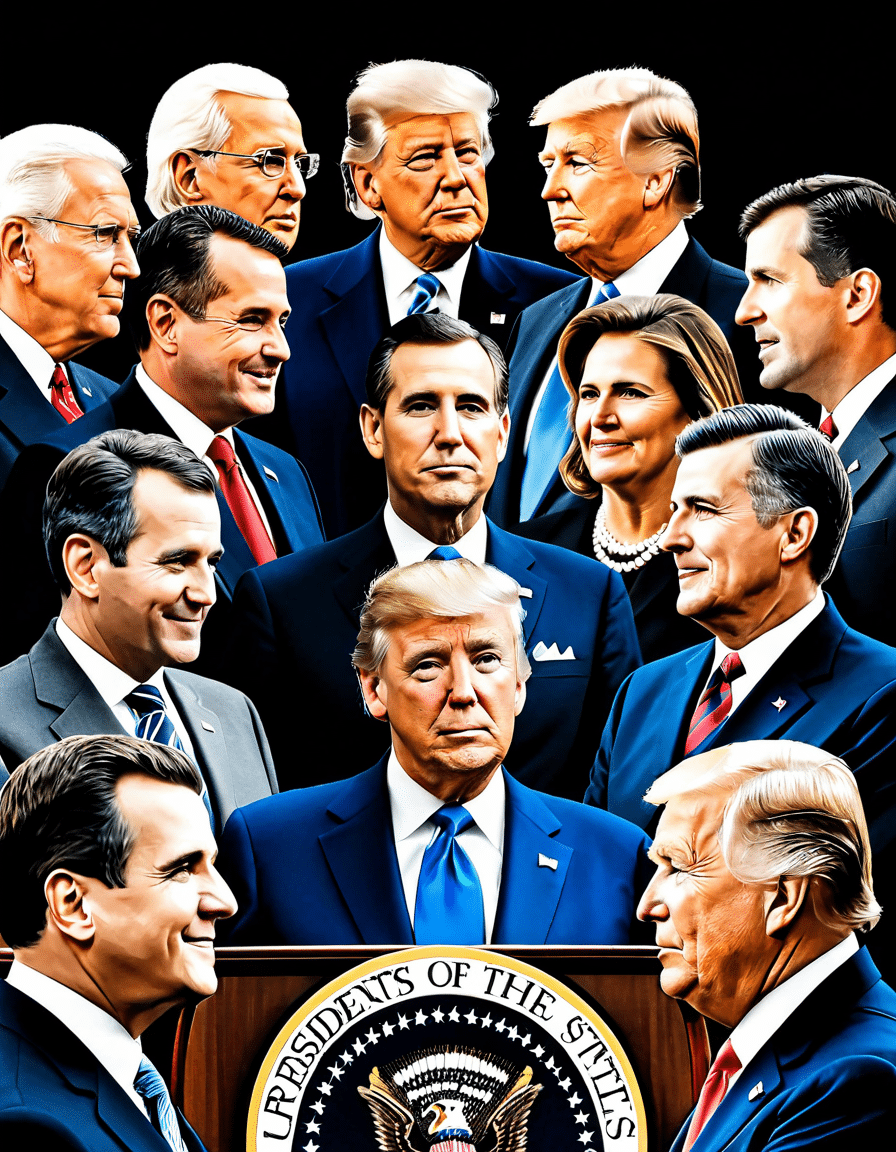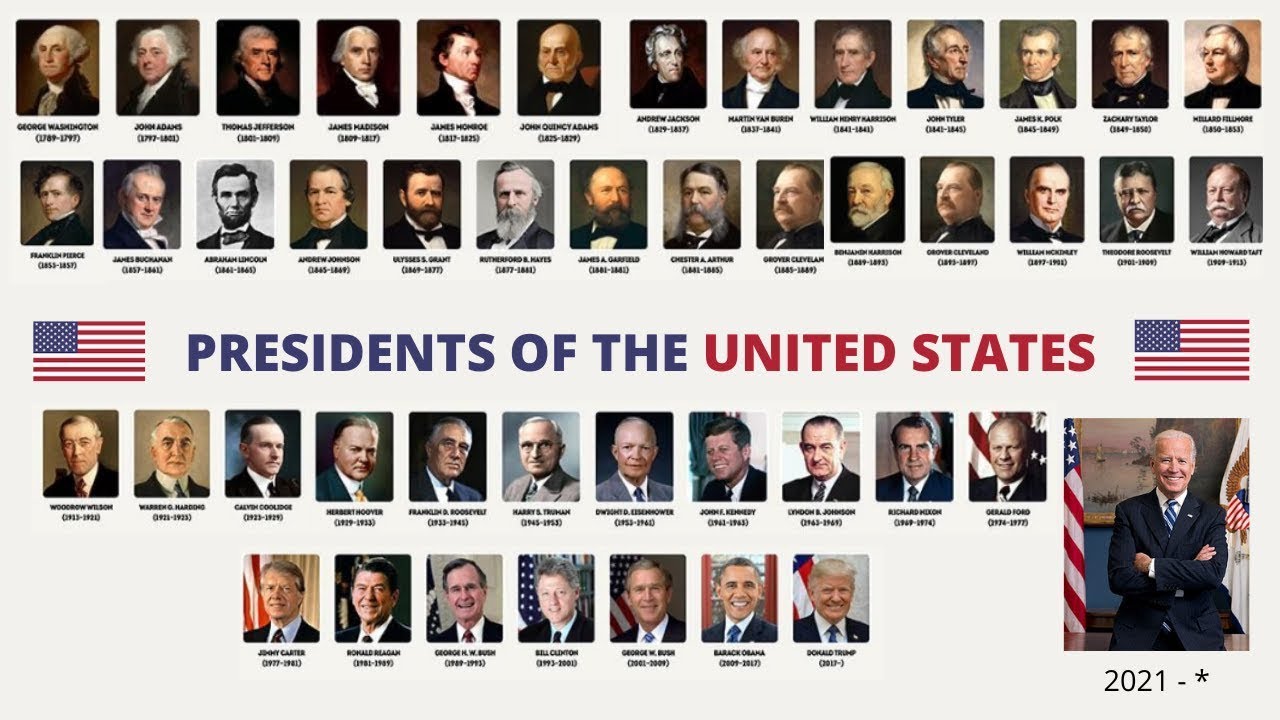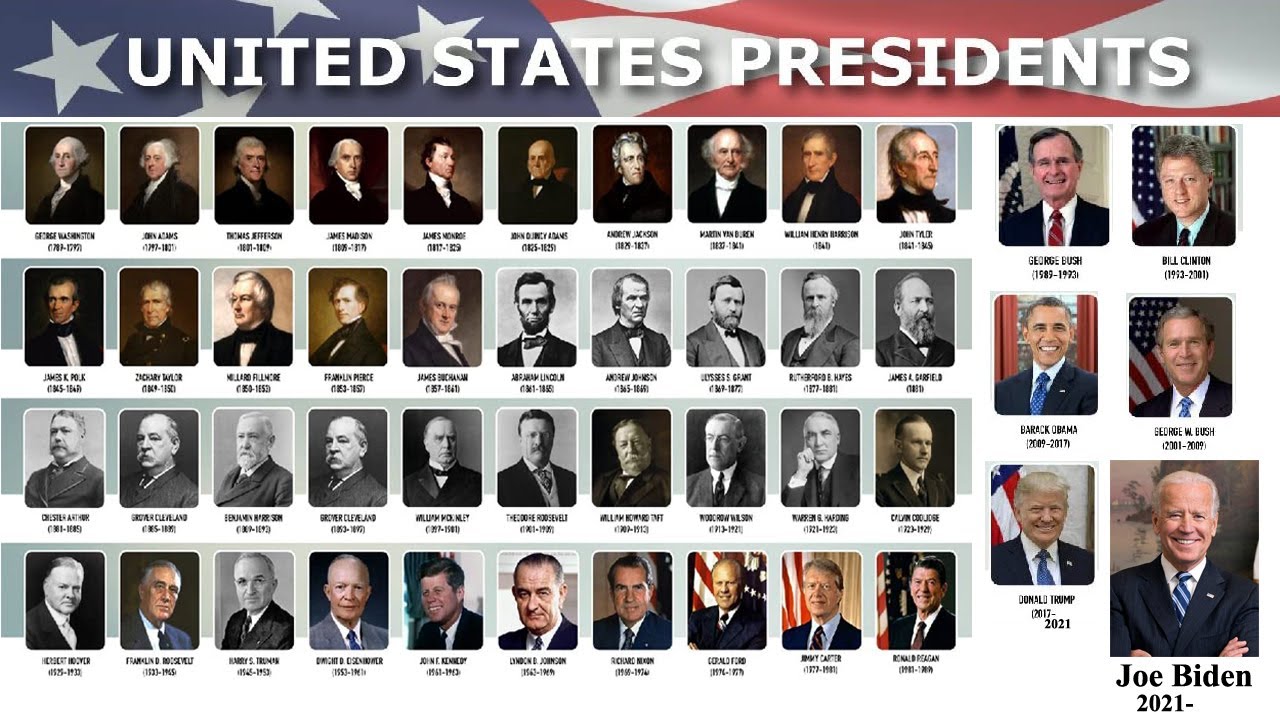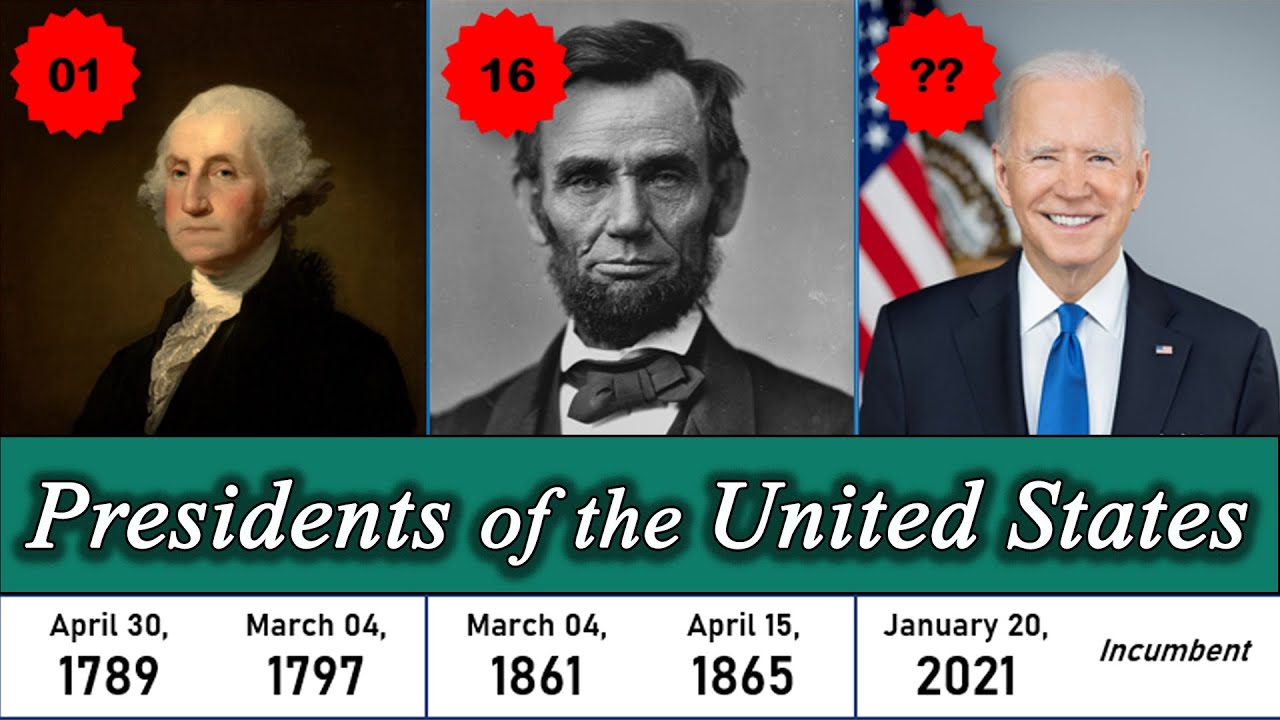Understanding the pivotal roles that various leaders have played in shaping the United States can deepen our appreciation for the nation’s history and governance. This structured overview highlights key figures from the comprehensive list of presidents of the United States, focusing on their contributions, challenges, and lasting impacts. Each president not only shaped policy but also had a direct effect on the nation’s identity and values—crafting what America stands for today.
Top 7 Presidents From the List of American Presidents
As the first President of the United States, George Washington set numerous precedents that still guide the presidency today. He emphasized the importance of a unified nation, steering the ship during a time of great uncertainty. His voluntary step down after two terms established an unwritten rule that discouraged lifelong governance, cementing the principle of democratic leadership. Washington’s legacy is evident even today as we reflect on the power of unity and leadership in addressing national challenges.
Jefferson is renowned for the Louisiana Purchase in 1803, which doubled the size of the nation and aligned with his vision of an agrarian America. His drafting of the Declaration of Independence showcased his democratic ideals, yet his ownership of slaves casts a shadow over his legacy—sparking ongoing debates about freedom and morality versus practicality. Through Jefferson, we see the complexity of America’s founding ideals, especially when viewed through the lens of modern values and ethics.
Lincoln led the nation through the Civil War, advocating fiercely for the abolition of slavery and the preservation of the Union. His iconic Gettysburg Address called for a “new birth of freedom,” and his leadership style—marked by empathy and strategic thinking—serves as a case study in effective governance during crises. His push for the 13th Amendment wasn’t just a political maneuver; it was a transformative moment that reshaped American society and underscored the continuous struggle for civil rights.
Frankly stated, FDR confronted two of America’s biggest crises: the Great Depression and World War II. His New Deal introduced sweeping economic reforms and safety nets, reimagining the role of government in American lives. With his hands-on approach and innovative programs for economic recovery, Roosevelt profoundly altered public expectations regarding governmental responsibility, illustrating the impact of proactive leadership during tough times.
Kennedy’s short presidency made a significant mark with initiatives like the Peace Corps and a call for civil rights advancement. His excitement around the Space Race ignited a wave of technological progress, while his deft handling of the Cuban Missile Crisis showcased critical leadership on the global stage. Though tragically cut short, JFK’s presidency galvanized a generation to engage more deeply with issues of equality, peace, and progress.
Reagan, often referred to as “The Great Communicator,” transformed American political discourse with his conservative policies. By advocating for tax cuts and deregulation, he sought to minimize government intervention in the economy, which played a crucial role in ending the Cold War. His charisma and ability to connect with the public left a lasting impression on American politics, establishing a template for political messaging that still resonates today.
As the first African American President, Obama boldly tackled healthcare reform through the Affordable Care Act, aiming to expand access and address inequalities. His leadership during the recovery from the Great Recession emphasized diplomacy and collaboration, highlighted by the Iran nuclear deal. Not only did Obama push for social change, but he also spotlighted ongoing discussions about race and equality, fostering dialogue that continues to influence contemporary America.
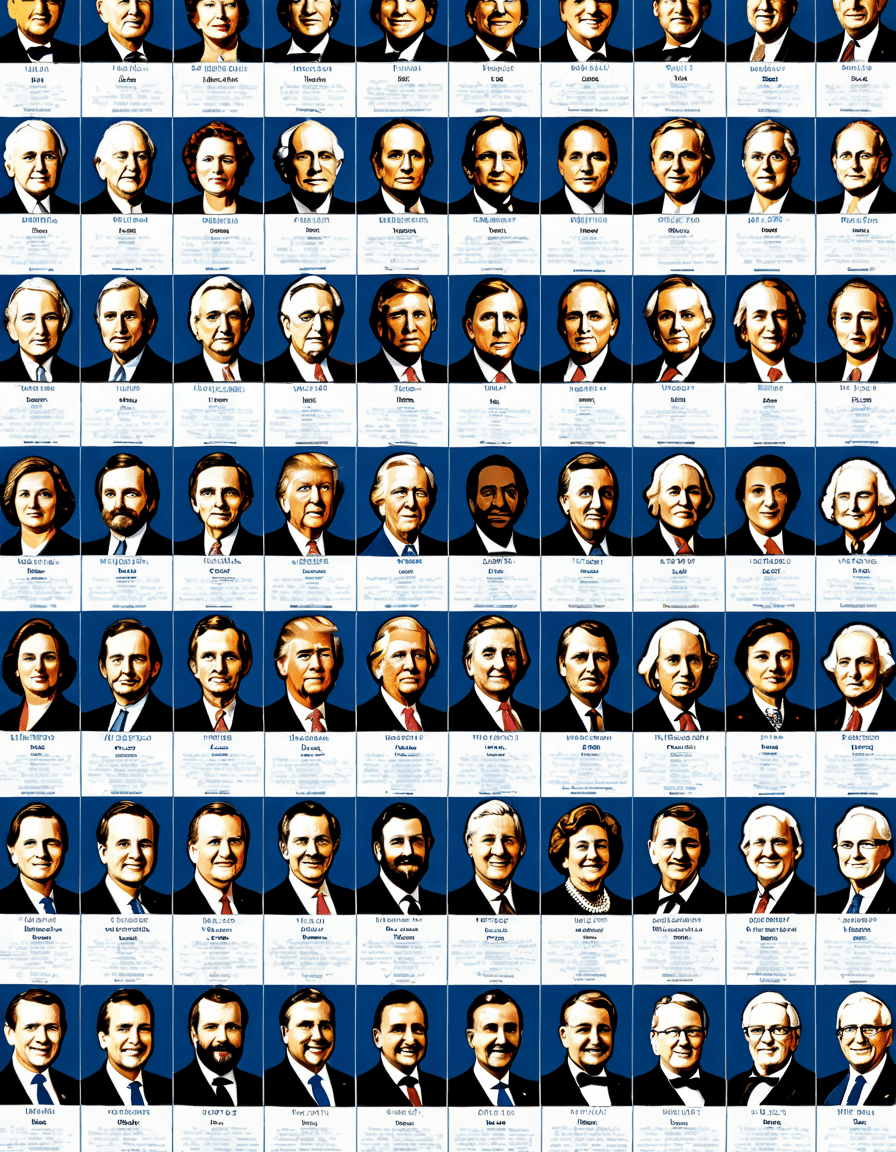
Examining the Legacy of the Presidents of the United States
The contributions and policies of these presidents offer significant insights into the evolution of American political and social landscapes. Each figure represents a particular era, reflecting changing values, struggles, and the aspirations of the American people. Understanding their impacts reveals how history continues to shape contemporary governance and signifies lessons that reverberate through time.
Presidential influence extends beyond their terms, informed through laws enacted, societal norms established, and the character of their leadership styles. For example, Lincoln’s legacy provides a framework for current dialogues on civil rights, while Obama’s vision is frequently referenced in the heated debates over healthcare and immigration. Engaging with these legacies allows us to form a critical perspective on how historical figures influence modern policymaking.
Innovations and the Future of Leadership
As we reflect on the paramount figures in the list of presidents of the United States, it becomes clear that each leader faced unique challenges while laying the groundwork for future improvements. Contemporary leaders grapple with issues that echo those of their predecessors, underscoring a persistent need for adaptable leadership to confront complex challenges.
Exploring the histories and impacts of these seven influential presidents reminds us of the democratic principles guiding the United States. Their stories illustrate a rich tapestry of triumphs and trials, urging current and future leaders to draw lessons from the past as they navigate a rapidly changing scene. Ultimately, understanding how the actions of these key figures shape our nation’s character fosters a deeper appreciation for democracy and governance today.
In closing, the list of presidents of the United States is not just a catalog of names but a collection of stories that inspire us to reflect critically on our national journey and the principles that guide it. Each president carved a niche in history, and their diverse paths encourage us to evaluate our own roles in an ongoing democratic dialogue—one that holds promise for a brighter future.
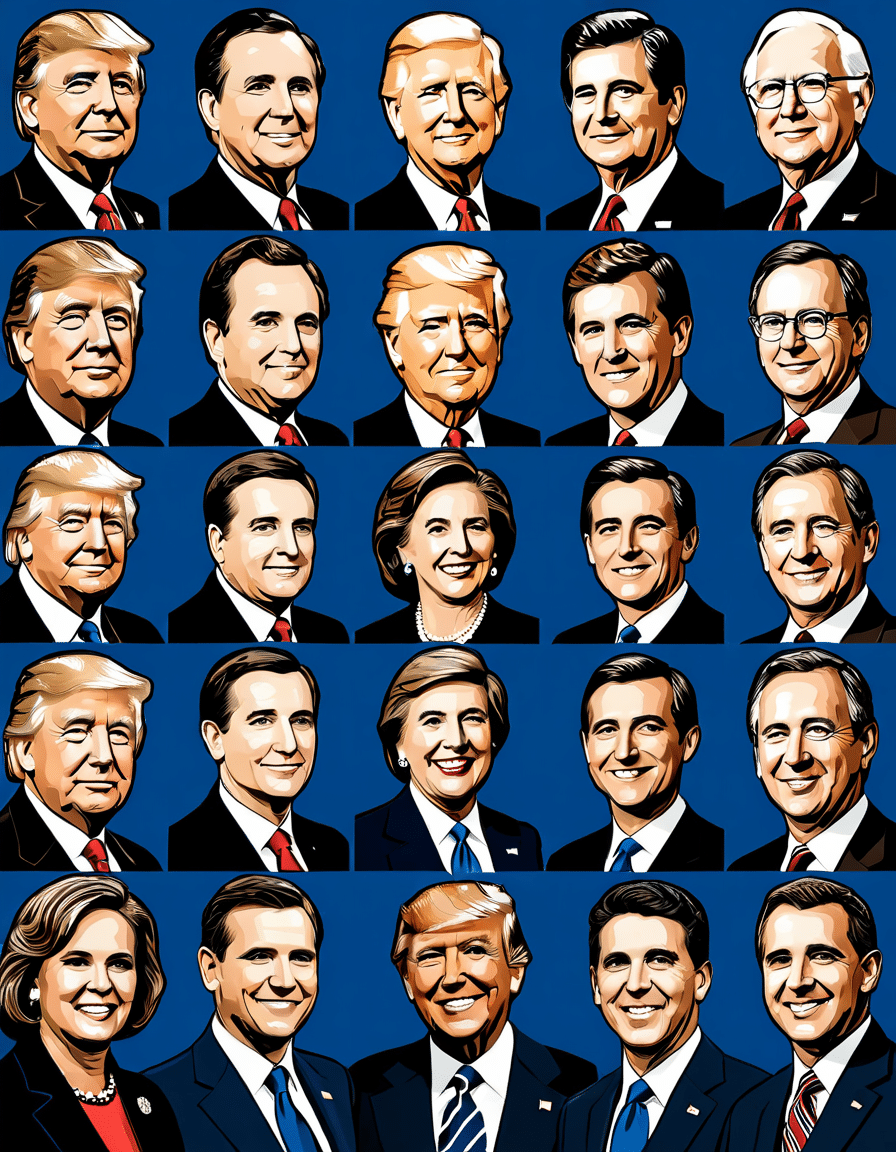
Fun Trivia and Interesting Facts About the List of Presidents of the United States
Presidential Highlights and Quirks
Did you know that George Washington, the very first president, had a few superstitious habits? He believed in omens and was quite the weather-watcher! This habit might not top the list of presidents of the United States, but it certainly adds a bit of character. On a different note, Franklin D. Roosevelt was so fond of his dog, Fala, that he famously included him in official photographs — a delightful touch in the list of presidents of the United States. Fala even had his own spot in the White House!
Speaking of unique personalities, Herbert Hoover’s presidency was marked by the Great Depression, yet his passion for engineering and public service shone through. He was quite the rockhound, collecting stones from every state! Can you imagine the size of his collection? Now, if we dive into pop culture, did you know that Frank Sutton, famous for his role in Gomer Pyle, U.S.M.C., was a distant cousin of one of the United States presidents? Talk about connections worth noting!
Remarkable Achievements and Trivia Tidbits
Now here’s a fresh piece of trivia for you: John Quincy Adams loved to take early morning swims in the Potomac River, even when it was freezing outside. What a passion for the chilly waters! Similarly, Theodore Roosevelt, who was known for his boisterous personality, was also the first president to ride in an airplane, making it a momentous occasion not just for the list of presidents of the United States, but for aviation history too!
Let’s pivot to the sporting side of things. Did you know that some presidents were avid sports fans? For instance, Tom Brady’s recent news might come as a surprise to those who appreciate a good football game. The ties between sports and presidential history are often overlooked, yet they add richness to the narrative. Additionally, Olympic swimmer Katie Ledecky, with her countless medals, stands as an inspiration, showcasing that dedication can get you far, similar to how many presidents paved their paths through tough times.
Presidents in Popular Lore
To wrap up our trivia, let’s not forget James Madison, who was a frail fellow but emerged as a key player in America’s founding. His Federalist Papers remain a cornerstone of American political literature. In today’s digital age, many events and personalities intersect, such as the recent Overwatch new hero release, which shows how culture continues to evolve. It’s fascinating how people stay connected through games and programs that keep the spirit of camaraderie alive — something that the list of presidents of the United States captures as they represent the nation’s journey through history. So, next time you delve into this list, remember the stories, quirks, and achievements of those who’ve held the highest office in the country!
